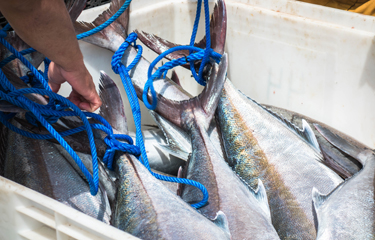The uncertainty generated by both Brexit and the COVID-19 pandemic for seafood processors across the European Union has increased the need for prompt agreement on the new autonomous tariff quota (ATQ) regulation for certain fishery products for the period 2021-2023, according to the European Fish Processors & Traders Association (AIPCE-CEP).
To enable the region’s processing companies to plan their activities and safeguard employment, the association is urging the European Commission and European Council to finalize negotiations on the new regulation as soon as possible.
In a statement, AIPCE-CEP stressed that the regulation has been “a crucial guarantee” of continuous and sustainable supply of raw material for the E.U. processing industry for the past 21 years, and has also guaranteed a level playing field for E.U. producers.
Ensuring stability and continuity of supply would be essential to the stabilization of employment following the pressures endured in past months, and will also be key to delivering industry growth in Europe, it said.
Since the formation of EU25/27 in 2006, the dependence of the bloc on imported seafood materials for its markets has been very consistent, remaining within the range of 63 percent by just 1 percent either way, while AIPCE-CEP’s own 2019 Finfish study finds that for some items, the E.U. measures a 75 to 100 percent dependency on raw material.
Tuna loins are “one of the indispensable items in the regulation,” which prove the dependency on imports regardless of the contribution of domestic supply, the association said.
“The 46 percent of the E.U. market that the E.U. processors are currently able to supply would be jeopardized without this ATQ, as well as the jobs it provides for, when the objective is to maintain positive values, or more so – to grow,” it said.
The organization said around 1.3 million metric tons (MT) of whole tuna fish are needed for the EU’s 760,000 MT canned tuna market, while the total E.U. catch is approximately 385,000 MT. At the same time, because the E.U. fleet sells 60 percent of its catch to third-countries, only 40 percent of its total catch is available to European processors as whole tuna.
“The success of the industry remains dependent on stable access to fish. It is important to have trade flows as seamless and smooth as possible due to the reliance of the E.U. processing industry on a truly global sourcing base," AIPCE CEP said. "Reliance on domestic supply only, would leave a much smaller industry, providing for less employment and would limit the scope for growth, or the capacity to buy fish from EU fishermen.”
Photo courtesy of Jose y yo Estudio/Shutterstock







